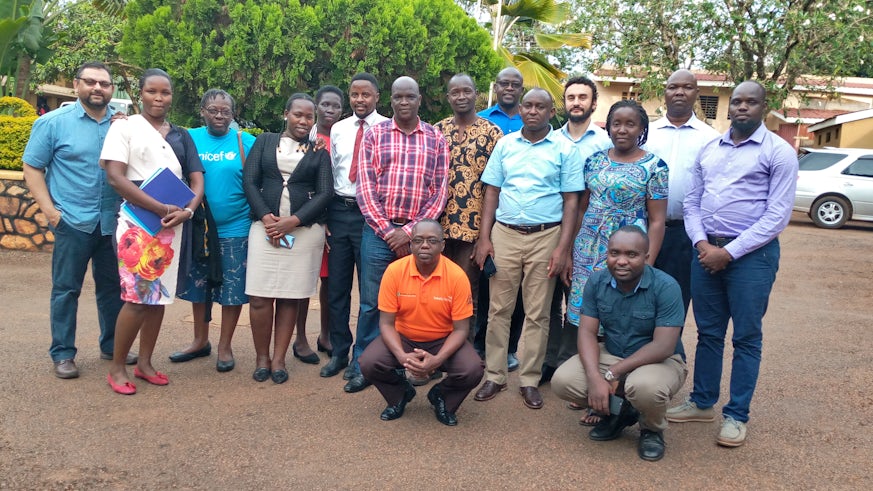Building capacity to monitor Ugandan social assistance schemes
8 January 2020

Cardiff University academics are helping to build capacity for monitoring the impact of social assistance schemes in Uganda.
Dr Marco Pomati and Dr Shailen Nandy are collaborating with UNICEF Uganda and Uganda’s Office of the Prime Minister to develop tools to assist with monitoring and evaluating the impact of two of Uganda’s largest social assistance schemes – the Northern Uganda Social Action Fund (NUSAF) and the Development Response for Displacement Impacts Project (DRDIP).
Both programmes tackle problems in the poorest, most disadvantaged communities, along with investing in local infrastructure and supporting local community-based organisations aimed at tackling poverty and improving people’s lives.
NUSAF, currently in its third phase, is a $130 million programme of assistance funded by the World Bank, working across 56 districts in the north of Uganda. DRDIP, also funded by the World Bank, is a $175 million multi-country programme, working in Djibouti, Ethiopia and Uganda. The programme addresses the impacts of forced displacement on countries and communities in the Horn of Africa region.
In December 2019, Dr Pomati and Dr Nandy travelled to Jinja, Uganda, to work with Mr Herbert Akampwera and Mr Michael Oturu, Monitoring and Evaluation Specialists for the Office of the Prime Minister, and Sarah Kabaija, Monitoring Specialist at UNICEF Uganda, to run a two-day workshop. The workshop was attended by planners from districts selected by the Office for the Prime Minister, administrators, academics and researchers.
Attendees were trained in statistics and analysis of data collected using the Consensual Approach to multi-dimensional poverty assessment, collected on over 4,000 Ugandan households in November 2019. Analysis of the data confirmed the extent of considerable material and social deprivation among adults and children in northern and western Uganda.
Dr Pomati and Dr Nandy also spent a day discussing fieldwork and preliminary findings with 70 enumerators from Uganda who collect data every six months which is then used for monitoring and evaluation of the NUSAF and DRDIP programmes. Future work will provide training on longitudinal analysis to assess changes over time and the impacts of different arms of each programme.
Dr Pomati notes of the work: “This ground-breaking work shows the commitment of the Office of the Prime Minister and UNICEF Uganda to evaluate the impact of important social and economic assistance programmes like NUSAF III and DRDIP. It was great to work with local planners, data enumerators, researchers and Monitoring and Evaluation specialists.”
Share this story
The School is an internationally recognised centre of high quality teaching and research.




